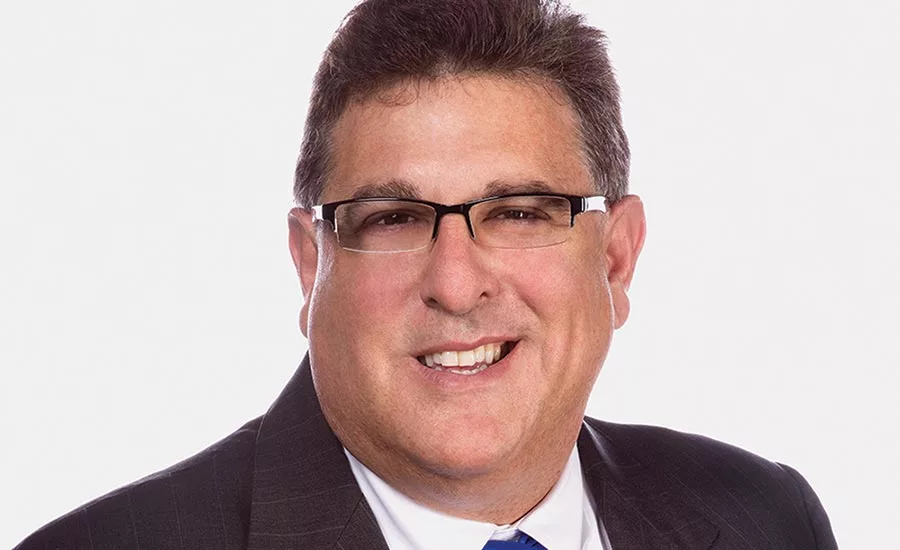How to Find Talent in a Tough Job Market
How do you lure employees with high level talent and keep them amongst tight labor markets with low unemployment?

Allied Universal conducts a training session for security personnel.
Photo courtesy of Allied Universal

“We love hiring people with business degrees,” says Brenda Studley, VP of Recruiting at Allied Universal. “We are very client focused so we love people who know how to work with customers, how to build relationships with customers and make it profitable for the customer and for us.”
Photo courtesy of Brenda Studley

Companies are quick to fill security jobs with the first warm body. They continually invest money in training and education and uniforms – and then people move on,” says Tony Gallo, managing partner at security consultancy Sapphire Risk Advisory Group.
Photo courtesy of Tony Gallo

At insurance provider Aflac, Tim Callahan, SVP Global Security and CISO, credits his single-digital turnover to a strong corporate culture. “People want to work for people who appreciate them,” he says. “One of the questions people ask about workplace engagement is: Do you have a best friend at work? If you are having a problem, do you have someone you can talk to? In our security organization we put a high value on being there for our people.”
Photo courtesy of Tim Callahan
Hiring security professionals at any level is hard and keeping them isn’t any easier. With a thin supply of skilled individuals and a highly competitive employment landscape, hiring and retention create ongoing struggles for many security professionals.
“We have tight labor markets with low unemployment, so just the sheer volume of hiring is challenging,” says Brenda Studley, VP of recruiting at Allied Universal. “When there is very low unemployment and we have to hire a lot of security professionals all at one time, it can be challenging.”
Research firm Statista reports there are about 810,000 security officers employed in the United States and demand continues to rise for both entry-level and management. Even if you’re able to hire the people you need, there’s no guarantee they will stay: Offers of higher pay and better hours frequently draw away high performers.
But there are ways to tame the pain around security recruitment and retention. What are the common sticking points, and the effective strategies for wooing and keeping top talent?
The Best Background
Credentials matter. A degree in security management or criminal justice typically is attractive. “We also have clients looking for certain certifications,” says Manta Security Management Recruiters founder Philip Farina. “The best we see is the CPP, the Certified Protection Professional through ASIS International. For someone just getting out of college there is the CPO, Certified Protection Officer, from the International Foundation of Protection Officers.”
Sometimes a sideways fit can work if the individual has the right mindset. “One of my best security hires was an engineer. He wasn’t trained to be security, but it was an easy transition because he came from an analytics background. He could step back and analyze a problem and develop a solution, rather than just haver a knee-jerk reaction to a situation. I saw a huge value in that,” says Tony Gallo, managing partner at security consultancy Sapphire Risk Advisory Group.
Others look for security professionals who can understand the big picture of what we are protecting and why. “We love hiring people with business degrees,” says Brenda Studley, VP of Recruiting at Allied Universal. “We are very client focused so we love people who know how to work with customers, how to build relationships with customers and make it profitable for the customer and for us.”
New Proposition Labeling Rules
The OEHHA recently revised the rules for Proposition 65 labeling of products.3 New rules include labeling of consumer products and workplace hazards, while additional requirements apply to e-commerce.
New Skill Sets Need
At Miami-based Manta Security Management Recruiters, founder Philip Farina sees increased complexity as among the biggest challenges to hiring senior security professionals.
“For a long time, security could be siloed – physical security, asset protection, less prevention,” he says. That’s no longer the case: Today’s top players need a mixed bag of skills. “Companies are trying to combine elements – security, safety, risk management, crisis communications – so in the mid- to upper tier positions you need someone who has multiple talents. But a lot of organizations are still siloed, which means that a lot of individuals have siloed skills.”
While some seek breadth of expertise, others are looking for depth, which can prove equally hard to find.
“There used to be a lot more standardization: You could go to nuclear or financial services or retail and it all was all basically the same job,” notes Bob Hayes, managing director at research and advisory firm The Security Executive Council. “Now each sector is much more sophisticated, more specialized. You need an unbelievable amount of core knowledge, and there are not a lot of places you can get that, especially if you are not already in that industry.”
If getting them is hard, so is keeping them. “Potential candidates know there is high demand. They can almost cherry-pick and choose among potential employers,” Farina says “You might be a really great solid employer – good benefits, good working environment – and three blocks down you have an employer adding $3 to $5 more an hour.”
What can you do in this environment? Plenty, actually.
Recruitment Tips
At Allied Universal recruiting is foremost an internal project, with 22 percent of the workforce coming from employee referrals. A security professional can earn up to $1,000 for bringing a friend into the fold.
With referrals, “we get high quality hires and we get good retention, and at the same time the bonus is a nice retention strategy, a way of recognizing our own security professionals,” Studley says.
Allied Universal also takes a proactive stance, with outreach to local workforce development boards, veterans’ groups, community colleges and others. The aim here is not always to make an immediate hire, but rather to sow the seeds of future engagements. “A lot of people don’t understand the security industry, so we talk about the importance of the industry, the growth of the industry. We want them to see the opportunities that are available,” Studley adds.
Others say the key to a successful recruitment program is to ground the effort in facts. Know the competitive landscape before you go out and spin your wheels with an offer that is below the market rate.
Hayes points to the Fousheè Group’s security industry compensation survey as the kind of tool needed to drive a competitive hiring effort. Without such data, “you don’t even know whether you are in the right ballpark, whether you are paying the right amount of money,” he says. “This is critical.”
Once you’ve done your homework, take a step back and slow the pace. Too often security falters when hiring managers feel pressed to snap up the first capable candidate.
“Companies are quick to fill security jobs with the first warm body. They continually invest money in training and education and uniforms – and then people move on,” says Tony Gallo, managing partner at security consultancy Sapphire Risk Advisory Group. “The people they are bringing on haven’t been vetted enough. When you hire someone, there has to be a level of passion. This has to be something that they really want to do.”
Sometimes, too, a security operation will miss a chance to hire a solid fit simply because the person reading the resume lacks sufficient expertise to recognize the skill set on offer. It often makes sense to have HR vet the resumes – they can weed out the obvious misses – but this practice risks letting good people slip through the cracks.
“If the first person who sees that resume doesn’t know a lot about security, they may not see what is really in there,” Farina says. “Someone with security experience might see solid progression from job to job, they might see skills that a generalist wouldn’t recognize.”
These strategies can help with hiring. But how to boost retention?
How to Reach Millennials
- Response time matters. Millennials want to hear from you promptly and often.
- Style is substance: They’ll walk away from a scripted or formal tone in favor of a company that sounds a little looser.
- Be authentic: Populate social media with “real life” photos and commentary; don’t just rely on HR or PR to carry the ball.
New Proposition Labeling Rules
The OEHHA recently revised the rules for Proposition 65 labeling of products.3 New rules include labeling of consumer products and workplace hazards, while additional requirements apply to e-commerce.
Building Better Culture
Across the boards, experts say that retention is largely a matter of culture. Money helps, you’ve got to be competitive, but you also have to be a good employer.
At insurance provider Aflac, Tim Callahan, SVP Global Security and CISO, says the company has a physical security team of about 30 people. He credits his single-digital turnover to a strong corporate culture. “People want to work for people who appreciate them,” he says. “One of the questions people ask about workplace engagement is: Do you have a best friend at work? If you are having a problem, do you have someone you can talk to? In our security organization we put a high value on being there for our people.”
For many, the chance at a promotion becomes a reason to stay for the long haul. “We have a robust training program for self-development and 65 percent of our managers are promoted within,” Studley says. “Coming to work for us is a career, versus being just a job.”
Sometimes, though, a strong culture can be a mixed blessing. At Aflac turnover is so low, there’s little chance for security folk to win promotion. That’s a possible negative, but Callahan says Aflac's director is able to leverage it to his advantage. “If you are looking for a place where there is stability, where you likely can be a long-tenured security employee, then Aflac can be a very attractive option,” he says. “We have one individual who knows exactly when he’s going to retire. He’s paying off a home, he has a fishing boat, he’s able to plan for all of that.”
Longevity is attractive to some, but it isn’t a sure win with every demographic. Millennials are notorious for job-hopping, and security executives looking to attract them may have to put something on the table besides the possibility of promotion.
At Allied Universal, responsiveness has proven key to attracting this rising demographic. The firm invites candidates to apply via mobile phone (where most Millennials live) and tries to respond within 24 hours. The company plans to launch a digital assistant soon to help move people through the process even faster. “It can find you a position based on hours, location, shift and pay, and it will direct you to a streamlined mobile application,” Studley says.
Cops and Vets
While some look for ways to court Millennials, others ponder the pros and cons of recruiting from within the traditional security labor pool of ex-cops and veterans.
The common advantages? These folks have a security mindset, they know how to work in teams and they can be easy to identify either through word of mouth of via advocacy groups. But there are potential pitfalls.
“There is not always an easy way to transfer those skills,” Farina says. “Physical security in the military is different from physical security in a shopping mall. In the civilian world you have to think about losses and how that impacts the overall business. And there are issues about how to deal with an incident: In the private sector you don’t have the same powers as you might have in law enforcement.”
For those who do look to law enforcement and veterans as the logical recruiting pool, experts suggest a little extra training may be in order.
“In law enforcement or the military, you are focused on a reactive mentality: Someone committed a crime or invaded a country and you have to react,” Gallo says. “In security you are more proactive, you’re designing programs to prevent problems from occurring. A lot of times a company will hire a retired police officer and assume they immediately know what they should be doing. Really someone needs to help that person to change their philosophy, and that requires communication.”
More than just a good hiring strategy, this approach is key to ensuring long-term retention. Help people to succeed in their jobs, and they’re more like to stick around – and that goes not just for ex-military, but for any new hire. A supportive culture often is key to keeping star players on board for the long haul.
Looking for a reprint of this article?
From high-res PDFs to custom plaques, order your copy today!








